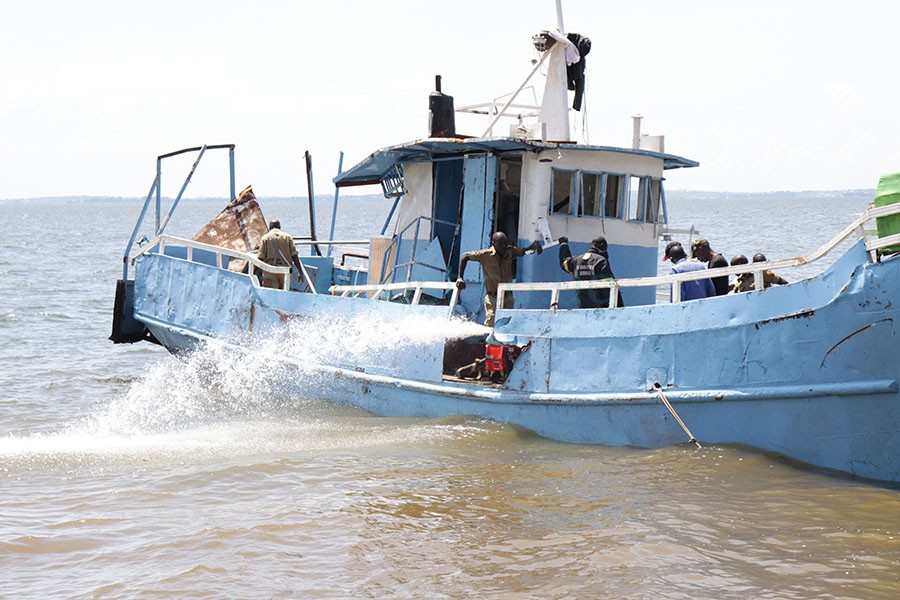As disaster preparedness and response continues to pose a challenge to government, with sprawling chunks of the population across the country suffer the debilitating effects of calamities, the African leadership institute, an independent, non partisan public policy pan African think tank has come out and urged government to review the disaster policy to cover emerging trends in environmental safety, reports Innocent Kayiza
This was during a breakfast meetings that took place on Thursday the 14th to launch the policy brief on disaster preparedness and management organized by the Africa leadership institute at hotel Africana.
According to the Head of civic engagement and research at the institute, Dr. Gerald Warikeh, the current policy is inadequate since it is not backed up by strategies to detect new dynamics on public safety in relation to the environment. As an institute we recommend that a regular review of the policy should be made to make it responsive to emerging issues, trends and circumstances.
In a statement issued to the media, the Africa leadership institute pointed out that the rising frequency of disasters in the country call for regular policy reviews to take into account evolving circumstances. Although some vulnerable populations in various parts of the world believe that disasters are mysteriously controlled by nature and that nothing can be done about their occurrence, scientific paradigms have changed human perception about them and consequently states worldwide have established departments to respond and prevent these disasters. Studies indicate that a large proportion of the population is threatened by man -made disasters. Some of the calamities have been linked to deep – seated poverty, cultural beliefs and scanty knowledge about misfortunes, leading to appalling levels of preparedness.
Recently MV Templar a luxury cruise boat on Lake Victoria sank and over 30 Ugandans died in the disaster. Boat cruise is a new fad in the entertainment industry, yet it poses peculiar risks in water level. It wasn’t until November 2018 that water related hazards like the MV Templar disaster that comprehensive documentation of these disasters started.











